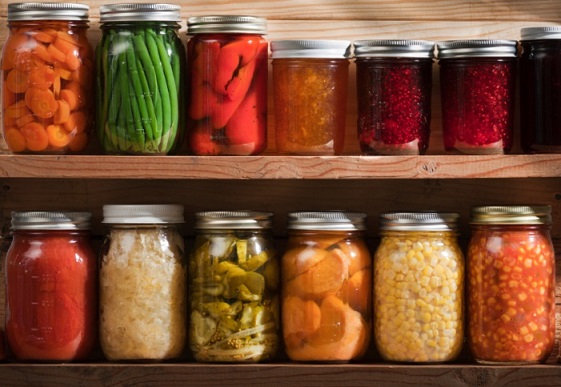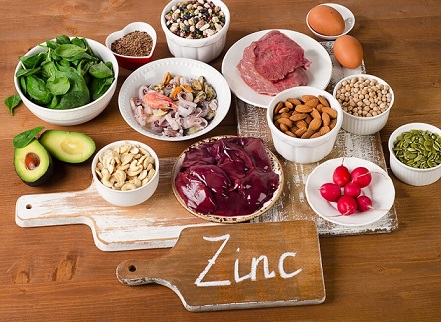Do you wonder why you always have heartburn and food intolerance? Do you have brittle nails and bowel issues as well? Well, these symptoms may indicate that you have low stomach acid. Without a healthy level of acid in your stomach, it is not possible to maintain good digestive system, which can affect your overall health. While stomach acid levels decrease with age, you can certainly try ways to improve things.
Signs Your Stomach Acid Is Low
Before going any further with home remedies, it is important to ensure that you really do not have enough acid in your stomach. Here are some common signs:
- You have gas and belching, especially within 60 minutes of having your meal.
- You have acid reflux, which is usually not caused by too much acid.
- You have bloating and cramping, especially within an hour of having your meal.
- You have bad breath, which is the result of bacterial fermentation in your stomach.
- You have bad body odor, which happens due to a microbial overgrowth throughout your body.
- You notice undigested food in stools, which suggests that your body does not have enough acid to metabolize the food you eat.
- You avoid meat because it makes you deal with digestive problems.
- You feel full but still want to eat more. That fullness is due to food sitting in your stomach, but you are hungry because your body has not received any nutrients from what you have eaten.
- You have weak, brittle fingernails, mainly due to nutrient deficiencies, especially minerals, protein, and B12.
Best Ways to Improve Low Stomach Acid
When you have confirmed that your stomach acid is low, you can try certain ways to improve your symptoms. Here are some suggestions.
1. Include Fermented Vegetables in Your Diet

Eating unheated, unpasteurized, salt-free fermented vegetables such as sauerkraut and Kimchi may help a lot with stomach acid production. The best thing about fermented veggies is that they help 'regulate' levels of stomach acid – it means they can increase it if it is too low and decrease it if it is too high.
2. Include Wholesome Food in Your Diet
You can increase your stomach acid production by eating wholesome foods and avoiding processed foods, fast foods, genetically modified foods, and artificial flavorings. Processed foods do not have any nutritional value, so it is better to eliminate them from your diet. It is also a good idea to avoid refined sugar, white flour, and artificial sweeteners to regulate stomach acid production. Including sea salt in your diet may also help stimulate the production of stomach acid.
3. Increase Your Intake of Zinc

Your body needs zinc to trigger the production of stomach acid. Whole foods can certainly help increase your intake of zinc. Pumpkin seeds are among the richest sources of zinc, and you can also opt for animal foods, such as turkey, beef, crabmeat, lamb, clams, lobster, chicken, and salmon to get zinc. Dairy products are also high in zinc – some good examples are nutritional yeast, cheese, kefir, and yogurt. You can also opt for peanuts, wholegrain cereals, beans, brown rice, potatoes, and whole wheat bread to get zinc. Also, include food rich in vitamin E, C, B6, and minerals such as magnesium to make it easier for your body to absorb all the zinc you are getting through food.
4. Do Not Eat Before Bedtime
Eating too close to bedtime is a surefire way of dealing with digestive problems. Your body needs time to digest food, but you can disturb that process by eating at a time when your body is naturally trying to relax. So, avoid eating before going to bed and never lie down soon after eating anything. Do not snack in between meals to improve digestion.
5. Avoid Cold Water with Meals

You should avoid ice water during meals because it lowers the production of stomach acid by slowing down your digestion. If you would want to drink something with your meal, it is better to opt for warm tea. You can always have a cup of ginger tea with meals to improve the production of stomach acid. Similarly, dandelion root tea is a nice option, and so is warm lemon water that you can have before you start your meal.
6. Avoid the Antacids
Americans spend billions of dollars on acid-stopping drugs or antacids. Many people do not know that many digestive problems that they face are due to low stomach acid and not due to high acid levels. Therefore, you should avoid OTC antacids and instead talk to your doctor to proceed properly.
7. Chew Food Properly

Proper mastication is essential to keep your digestive system in perfect condition. Most people understand the importance of chewing their food thoroughly, but only a few really keep it in mind while eating. Taking more time to chew your food will also keep you from overeating, which will prevent other issues, such as nausea, heartburn, and bloating.
8. Learn to Manage Stress
It is hard to avoid stress in today's world, but you should learn how to manage it properly. You should avoid eating when you are really stressed because your body is in a survival mode and will not make specific enzymes available to facilitate digestion of food. When this happens, food stays in your stomach for a long time and fermentation leads to bloating, gas, and digestive stress. Try relaxation exercises, meditation, and other ways to control stress.
9. Take HCL Supplements

When nothing else works, you can deal with low stomach acid by taking HCL supplements with pepsin. While these supplements can help improve stomach acid levels and treat food allergies, leaky gut, and acid reflux, you should not take them on a long-term basis. Be sure to talk to your doctor before you include any HCL supplement in your routine.
10. Manuka Honey
This honey has healing properties and is extremely effective against H. pylori and other pathogens. It is due to its antibacterial activity that it can help treat digestive disorders. Just be sure to opt for the finest quality Manuka honey to get good results.
